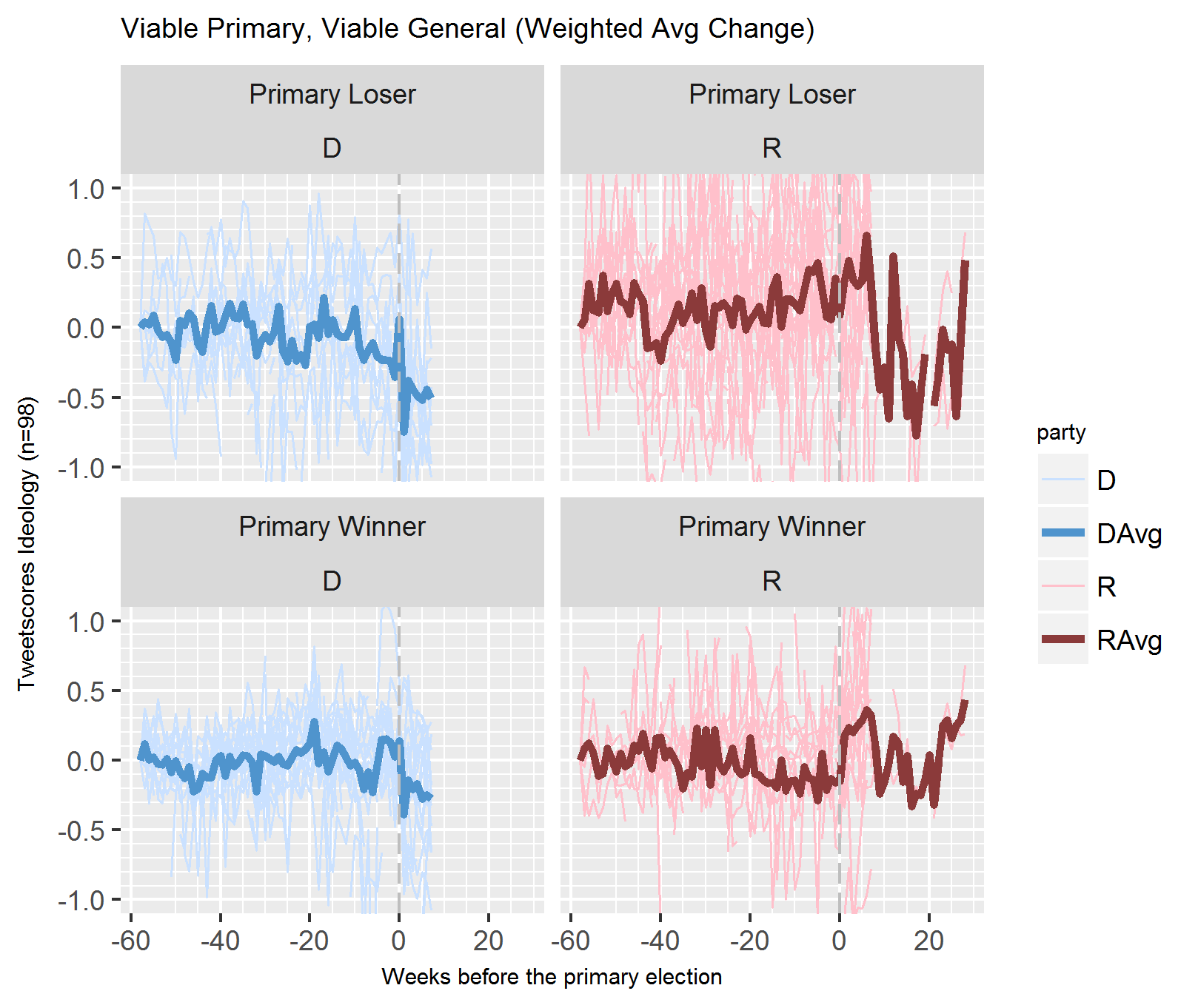Pablo Barberá and Aaron Kaufman
Abstract: A rich literature in formal modeling makes predictions regarding candidate behavior, and how incumbents may be ideologically constrained by a primary or general election challenger. However, no empirical evidence has ever been brought to bear on the question of whether candidates conform to these theories. In this paper, we apply a novel method of ideal point estimation to empirically test predictions of these models. Using follower networks on Twitter, we estimate the ideal points for every candidate running for United States Federal office in 2016, for every day from April 2015 until election day. In doing so, we create the first temporally fine-grained data set of candidate ideology over time for more than 1,000 candidates for the Presidency, US House, and US Senate. We show that candidates do ideologically reposition over the course of the campaign, but with heterogeneity conditional upon electoral contexts and challenger-based incentives. In particular, we examine whether candidates adopt more extreme ideological positions during primary election season when they are challenged, to later converge to the ideological center in contested general elections, and how these changes vary across parties. In doing so, we shed new light on well-developed but largely untested theories of electoral politics.
